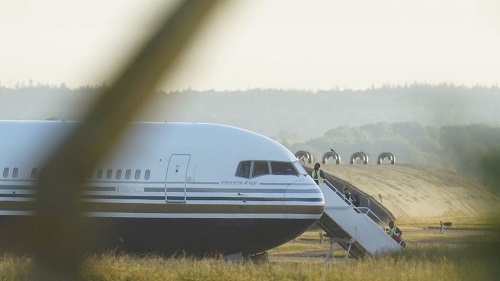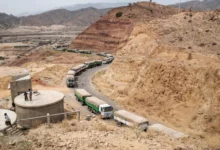
UK ministers who backed sending asylum seekers to Rwanda were warned by their own adviser that its government tortures and kills political opponents.
The warning came weeks before the British government tried to send asylum seekers to the African nation.
The adviser raised concerns about the tone and accuracy of an official note on Rwanda’s human rights record.
There is an ongoing legal challenge against government attempts to keep more of the comments secret.
Migrants identified for the aborted flight, and three media organisations – BBC News, including BBC Two’s Newsnight, the Times and the Guardian newspapers – are seeking disclosure of the material.
The first Rwanda flight was grounded in June after the European Court of Human Rights said the High Court in London must first fully examine whether the removals policy was lawful. A hearing is scheduled for next month.
On Tuesday, the government asked the High Court to rule that the case should not include 11 specific comments about Rwanda from an unnamed Foreign Office (FCDO) official, who had been asked for their view.
The court heard that FCDO bosses had asked the unnamed official, who had some expertise in African affairs, to look at a draft of the Rwanda “Country Policy and Information Note”.
This is an official and public document on the country and its human rights record – and it was being updated while the Rwanda flights plan was being thrashed out.
In an email sent to colleagues on April 26 – two weeks after the plan became public – the reviewer questioned the tone of the report and whether it accurately reflected the situation in the country.
High Court Judge, Lord Justice Lewis, was told the official had written in a covering email: “There are state control, security, surveillance structures from the national level down… political opposition is not tolerated and arbitrary detention, torture and even killings are accepted methods of enforcing control too”.
Jude Bunting QC, appearing for the media organisations, told the court the withheld evidence from the reviewer was likely to be the most critical material about the Rwanda affair.”The sensitivity of this policy cannot be understated,” he said. -BBC






